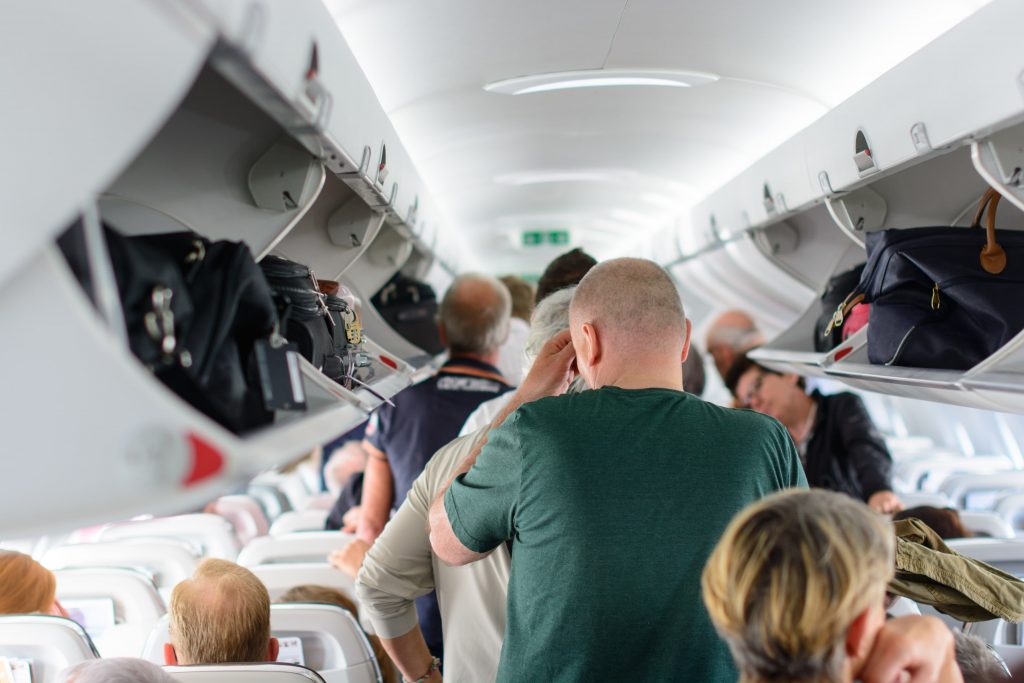2019 – A Year in Disability News
2019 marked some huge changes in the world of disability. From the extension of the Blue Badge Scheme to huge changes in disability benefits, there were some really positive stories mixed in with some not-so-positive.
We’ve put together a round-up on the main disability news stories that hit the headlines last year.
January 2019 – Work and disability #Valuable
The Valuable 500 initiative launched at the World Economic Forum annual summit. Its aim is to create a global movement, putting disability on the agenda of as many business leaders as possible.
From 2019, companies who sign up to the Valuable 500 initiative are expected to put disability on their board’s agendas from 2019. As well as this, business leaders must make one firm commitment to enabling greater diversity for people with disabilities in the workplace.
Check out our blog to find out more about dealing with hidden disabilities in the workplace.
There has been plenty of focus on gender and diversity in the workplace over the last few years, and we hope that positive conversations about disability in the workplace will continue in 2020.
February 2019 – Disability emojis and Virgin Atlantic launch their hidden disability scheme
Back in February 2019, Apple gave us a preview of several new emojis that were designed to better represent people with disabilities. These emojis were to be available to iPhone users from autumn 2019.
The disability-themed emojis were announced along with a suite of other emojis promoting diversity in different ways. This included the ability to personalise the gender and skin tone of couples holding hands, allowing for over 75 combinations of couples!
(We were also pretty happy to see the launch of a sloth emoji!)
Virgin Atlantic also launched their hidden disability initiative. The initiative aimed to make flying an easier experience for those who may face additional challenges when travelling.
Virgin Atlantic created their own symbol, which informed staff if someone had a disability that wasn’t immediately obvious, helping them to offer assistance at the earliest possible point. This symbol can be worn on a badge, put somewhere on the customer’s passport, or shown to staff via a smartphone.
The dedicated Special Assistance team at Virgin Atlantic launched new guidance for customers on how they can help with things like priority boarding, pre-assigned specified seating, and delayed or pre-boarding for customers with hidden disabilities.
March 2019 – Changes to disability benefits
In March 2019 the Work and Pensions Secretary at the time, Amber Rudd, announced 9 key changes to the disability benefits system.
The 9 changes introduced by the Government were:
1 – Personal Independence Payment (PIP) claimants over retirement age will no longer have to face assessments every few years
2 – The company contracted to conduct the fit-for-work tests, Maximus, had their contract extended
3 – The Department of Work & Pensions (DWP) will combine its data systems so that information about claimants’ fit-for-work tests and PIP assessments can be accessed from the same place.
4 – The PIP appeals system will be looked at. The amount of people winning an appeal against a PIP decision was deemed too high, so work is going into making sure the DWP make the correct decision first time around
5 – The sanctions regime is to be altered, making it ‘softer’
6 – Reform of the internal appeals system. This means the process for launching any sort of benefits appeal is going to be looked at
7 – Sick pay reforms will be made – this includes changes to Statutory Sick Pay and the access workers have to Occupational Health services
8 – Research will be conducted to understand the disability benefits system from the point of view of claimants
9 – The target of having 1 million more disabled people in employment by 2027 could be raised
Many charities welcomed the majority of these changes but said that they didn’t go far enough. Perhaps 2020 will bring further reform for those claiming disability benefits.

April 2019 – Thousands have disability vehicles taken away
In April, it was announced that more than 50,000 disabled people had lost their entitlement to a vehicle on the Motability Scheme since 2013.
The consequence of this was that there were copious amounts of people who lost their entitlement to a car, mobility scooter, or powered wheelchair, and had their freedom restricted.
Back in 2013, Personal Independence Payments (PIPs) replaced the old Disability Living Allowance (DLA). Since then, 51,000 people have lost their entitlement to a disability vehicle, but 3,000 of these have appealed the decision and won.
If you are leaving the Motability Scheme and purchasing your own vehicle, it can be stressful trying to find insurance that’s suitable for your specific needs. We offer cover for Motability vehicles that were bought when leaving the scheme and can even turn any claim-free years on the Motability scheme into a no-claims bonus! Find out more about our Car Insurance policies for ex-Motability customers here.
May 2019 – Gove takes action to ban plastic straws
Over the past few years, awareness has increased hugely about the impact that non-recyclable plastics have on our environment. With big-hitters including Sir David Attenborough campaigning for companies and consumers to try and cut down on the amount of plastics they use, the war on plastic has ramped up significantly.
Whilst most people agree with this war on plastic and want to do their bit to help the environment, for some people with physical disabilities, a plastic straw is not a luxury but a necessity.
Following feedback from charities and organisations championing the rights of people with disabilities, the Government have listened and made some changes to the ban. In April 2020, new legislation is due to be brought in, meaning people who require a straw for medical use will be able to source them from pharmacies or request them at restaurants, pubs or bars.
June 2019 – PM unveils new accessibility standards
Theresa May, PM back in June 2019, announced a new plan to tackle injustices faced by disabled people in the workplace, at home, and in the community through a new package of reforms.
These changes included:
- Higher accessibility standards for new-build housing
- Changes to statutory sick pay
- More support in the workplace for those with disabilities
The hope is that these changes enable those with disabilities to have a higher standard of living, reducing the stress that can come with some of the barriers they often face.

July 2019 – Airports make ‘significant’ progress
UK airports were deemed to have made ‘significant improvements’ in providing help for passengers with disabilities and mobility problems.
14 UK airports managed to achieve a ‘very good’ rating from the Civil Aviation Authority (CAA), with only Manchester airport receiving a rating of ‘needs improvement’.
2019 was the first time that no UK airports were given a ‘poor’ rating, showing that work is going into improving the service offered to passengers with disabilities.
August 2019 – Blue Badge extending for those with hidden disabilities
From August 30th, an extension to the Blue Badge Scheme came into place, including those who have non-visible disabilities. This was the biggest change to the scheme in nearly 50 years.
This change to the scheme was intended to recognise that not all disabilities are visual, but that those with so-called ‘hidden disabilities’ may also benefit from preferential parking.
People with conditions like autism, anxiety, or other mental health conditions can now apply for a blue badge. Acceptance isn’t guaranteed, so applicants will still need to meet certain criteria to be eligible for a badge.
The types of people with hidden disabilities that might be eligible for a blue badge include:
- Those with conditions preventing them from taking journeys without risking significant harm to the health and safety of themselves or others
- Those who can’t take journeys without the risk of being under severe psychological distress
- Those who struggle to walk, whether that’s physically or experientially
Check out our blog to find out whether you’re eligible for a blue badge and how to apply.
Charities and other organisations had been campaigning for this change for years, arguing that many hidden disabilities cause issues with walking longer distances or using public transport.
We hope that this change helps to bring a whole new level of independence to those who may have previously felt restricted by their lack of access to blue badge parking.
September 2019 – Influx of Blue Badge applications
Following the extension of the Blue Badge scheme in August 2019, there was a huge influx in the number of people applying for a badge. This huge number of applications dominated the news in September, generating plenty of discussion about the application process, parking frustrations, and access to suitable parking for those with many forms of disabilities.
Blue badge parking is a topic that gets many people riled up. The abuse of blue badge spaces isn’t uncommon, and would you believe there’s even been a rise in the number of people using blue badges fraudulently? The Department for Transport showed that prosecutions for blue badge fraud increased by almost 18% between 2018 and 2019.
If you’re wondering how and where it’s legal for Blue Badge holders to park, the Citizens Advice Bureau have some great information available to help keep things simple.

October 2019 – Major supermarkets roll out hidden disability sunflower lanyards
After successful trials of the Sunflower Lanyard scheme, Argos and Sainsburys announced a nationwide roll out.
The Sunflower Lanyard provides a subtle indicator to staff members that one of their customers has a hidden disability and may require extra assistance. This scheme was launched around the time when several supermarkets announced other initiatives like quiet shopping hours, to benefit those with sensory issues.
With hidden disabilities becoming a prevalent talking point in 2019, its our hope that supermarkets will go even further in 2020 to make the shopping experience easier for those with a variety of both visible and invisible disabilities.
November 2019 – More places adopt the Sunflower Lanyard scheme
Following the success of supermarkets adopting the Sunflower Lanyard, many different venues across the UK got on board and advertised their participation in the scheme.
A huge range of places across the UK promoted the scheme including the Trafford Centre, Harrogate Library and Brighton Theatre Royal to name just a few.
Many different airports, railway stations, cinemas, museums, and galleries have also adopted the scheme, highlighting to customers that they can tailor their service to their individual. This could include things from autism-friendly film screenings at cinemas, to quiet spaces or sensory rooms at the airport.
December 2019 – International Day of People with Disabilities
Since 1992 the United Nations have promoted the International Day of People with Disabilities, which is held on the 3rd of December.
The day is to celebrate the achievements of people with disabilities living all around the world. However, it is also a time to promote the rights of people with disabilities and highlight the need for them to be better represented across the board.
Last year’s theme was ‘The Future is Accessible’. The idea behind this was to promote a future where the barriers that still exist for those with disabilities are non-existent. The organisers summarised this by saying:
“We envisage a future where people can access a building without using stairs; where a person can access a ramp to the beach; or can get a job without fear of discrimination; or can access a mainstream classroom.”
If there’s one thing we can all agree on, it’s that if we all work together to get closer to this ideal in 2020, the world will be a better place!

